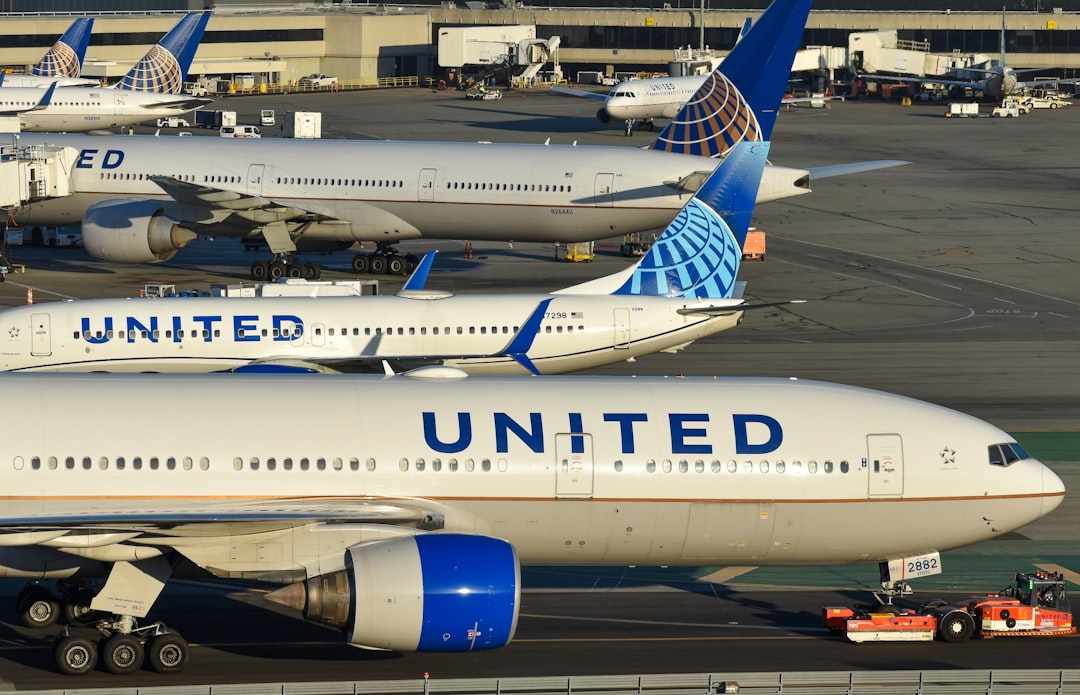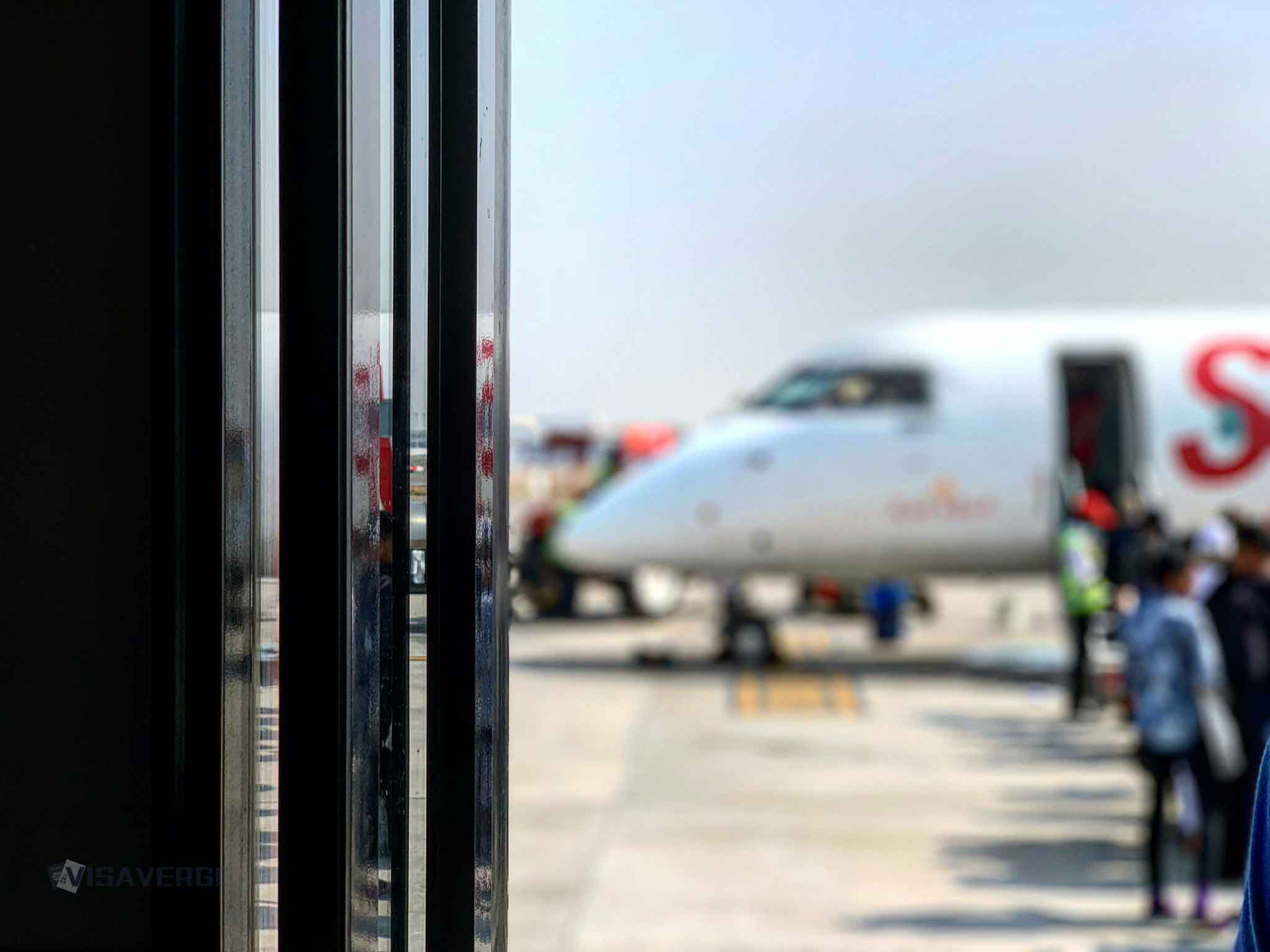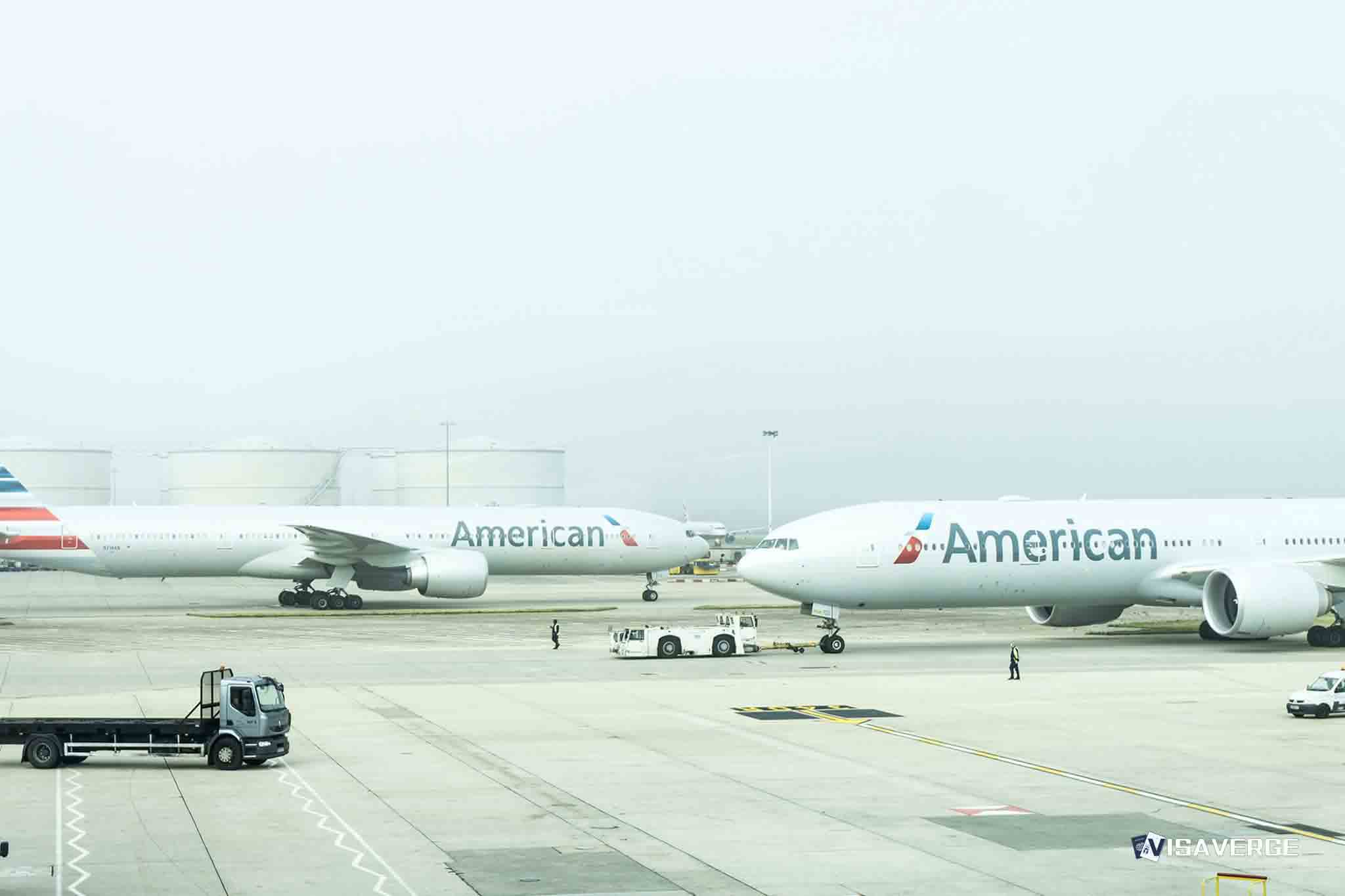(CALIFORNIA, UNITED STATES)
Central development and immediate stakes for travelers

United Airlines has moved to shut down a proposed class-action lawsuit accusing the carrier of charging extra for “window seats” that, on some aircraft, sit beside a blank wall rather than an actual exterior window. On November 11, 2025, the company filed a motion in California federal court arguing that the word “window” identifies the seat’s position near the aircraft wall and does not guarantee an exterior view.
United’s filing states: “The word ‘window’ identifies the position of the seat—i.e., next to the wall of the main body of the aircraft. The use of the word ‘window’ in reference to a particular seat cannot reasonably be interpreted as a promise that the seat will have an exterior window view,” as reported by Reuters.
The case — Brenman et al v United Airlines Inc, Northern District of San Francisco, No. 25-06995 — seeks to represent more than 1 million passengers and recover millions of dollars in damages tied to seat selection fees that plaintiffs say were paid under a misleading label. For travelers who pay more for window seats to reduce motion sickness, keep kids engaged, or enjoy the view, the outcome could shape how seat labels and fees are presented during booking.
Case overview and core allegations
The lawsuit targets the practice of labeling seats as “window” and charging a premium when no exterior window exists at that spot. According to the complaint:
- Affected aircraft models include Boeing 737, Boeing 757, and Airbus A321.
- Plaintiffs allege more than 1 million passengers were affected and that total damages reach into the millions.
- Named plaintiffs: Marc Brenman (San Francisco) and Aviva Copaken (Los Angeles).
Copaken says United refunded her fees for two flights where she sat in windowless “window seats,” but not for a third flight. The filing argues many people pay the window premium for clear, personal reasons — motion comfort, keeping children engaged, and enjoying the view — and would not have paid these fees had they been told the seat was windowless.
Plaintiffs note seat fees can exceed $50 on United for basic economy and exceed $30 on Delta, which faces a similar suit in another court.
United’s motion to dismiss: central arguments
United asks the court to dismiss the class-action by focusing on how the company defines seat types on its seat maps. Key points in United’s filing:
- The label “window” denotes seat position next to the fuselage wall, not a promise of an exterior view.
- It is unreasonable to interpret “window” as a guarantee of a pane and view.
- Federal law, the carrier argues, largely bars lawsuits targeting airline fees and surcharges, including seat selection charges.
- Ancillary revenue (fees) helps offset operating costs and keep base fares lower, the filing states.
If the court accepts United’s position, the case could be dismissed before discovery or trial, and the outcome could influence other similar claims.
Plaintiffs’ response and consumer expectations
Plaintiff attorneys strongly contest United’s reading. Carter Greenbaum, counsel for the plaintiffs, says United’s stance is “contrary to the reasonable expectations of countless passengers who unknowingly paid extra money for windowless window seats,” adding that “consumers deserve better than empty promises and United’s word games,” according to Reuters.
Plaintiffs’ core contentions:
- When airlines market a “window seat,” most travelers reasonably expect an outside window, not just a seat next to a wall.
- People choose window seats for motion comfort, children’s distraction, and the view; a blank wall defeats these purposes.
- Failing to disclose a missing window tilts the booking process and causes consumers to pay more for a seat they would not have selected if properly informed.
Aircraft design: why “window seats” sometimes lack windows
The complaint explains a straightforward design issue:
- Some seats align with fuselage sections occupied by systems (air-conditioning ducts, conduits, structural components).
- Those seats can be next to the aircraft wall but not aligned with an exterior window cutout.
- Despite that mismatch, airline seat maps and checkout flows may still label these as “window” seats.
Plaintiffs argue that when a fee applies specifically to a “window seat,” the booking path should disclose when an actual window is missing. While frequent flyers may notice these quirks, plaintiffs say this should not be the passenger’s burden—especially when the airline charges a premium.
Comparison with other carriers
The complaints contrast airline practices:
- Alleged disclosure: Alaska Airlines and American Airlines reportedly flag which seats lack windows during booking.
- Alleged non-disclosure: United and Delta reportedly do not display that detail on their booking pages.
- A related case against Delta Air Lines is pending in Brooklyn federal court, led by Nicholas Meyer of Brooklyn.
Plaintiffs emphasize fees exceeding $50 on United and $30 on Delta for basic economy as price points where the label matters and consumers should be informed about missing windows.
The people behind the suit and partial refunds
Two named plaintiffs show how the issue affects real travelers:
- Marc Brenman (San Francisco) — paid for a window seat but alleges no window was present.
- Aviva Copaken (Los Angeles) — says she received refunds for two flights but not a third.
Partial refunds highlight inconsistent remedies and underpin plaintiffs’ call for a uniform approach and class relief to repay affected travelers.
United’s broader legal framing
United reiterates two themes in its defense:
- Label meaning: “Window” is a positional label, not a promise of a view.
- Preemption: Federal law, in the company’s view, bars many private suits challenging fees and surcharges that are part of ancillary revenue.
United asks the court to reject the complaint on legal grounds before fact-finding. As of November 11, 2025, the motion remains pending.
Timeline, case posture, and related litigation
- Filed: Complaints were filed in August 2025.
- Motion to dismiss: United filed on November 11, 2025, in the Northern District of San Francisco.
- Case: Brenman et al v United Airlines Inc, No. 25-06995.
- Class sought: More than 1 million passengers; millions in damages.
- Status: Motion to dismiss pending; no ruling yet on class certification or dismissal.
A related class action against Delta is pending in Brooklyn federal court.
Price points, booking paths, and disclosures at issue
Central disputes focus on what consumers see at checkout:
- Plaintiffs allege United charges more than $50 for some basic-economy window seats; Delta charges more than $30 for similar selections.
- The suit claims United and Delta don’t disclose windowless seats during booking, while Alaska and American do.
- The claim is narrow: plaintiffs challenge only fees charged for seats that lack an actual exterior window.
Why travelers pay for window seats
Plaintiffs list common reasons passengers pay extra:
- Reduce motion sickness by focusing on the horizon
- Keep children engaged with outside views
- Enjoy scenic views during flight
They argue a blank wall defeats those purposes and that they would not have paid the extra fee had they known the seat lacked a window.
Third-party seat maps and airline responsibility
- Some passengers use third-party maps (e.g., SeatGuru) to spot windowless rows.
- Plaintiffs say airlines shouldn’t rely on passengers to consult external resources and must disclose exceptions on their own booking pages—especially when charging a premium.
This disclosure issue is central to whether a class should be allowed to proceed.
How to follow the case and official consumer channels
Travelers can track litigation through the federal docket for Brenman et al v United Airlines Inc, No. 25-06995. For general consumer air travel guidance, see the U.S. Department of Transportation’s Aviation Consumer Protection page at https://www.transportation.gov/airconsumer.
Note: This is a private class action, not a government enforcement action. Official DOT pages can still help passengers with complaint procedures and general information about carrier disclosures.
Practical booking considerations highlighted by the complaint
If you’re booking and concerned about window seats, consider these steps:
- Confirm whether a “window” seat on your aircraft type might align with a blank wall.
- Decide how much the label “window” guarantees the experience you want (view or motion comfort).
- Keep booking confirmations and receipts if you later request a refund for a paid window seat that lacks a window.
- Document customer-service interactions (dates, names, outcomes) when refunds are partial or inconsistent.
- Check third-party seat maps for row details, but remember plaintiffs argue airlines should disclose exceptions directly when charging fees.
These are practical precautions; they do not predict the court’s decision.
The human angle: refunds, frustration, and expectations
Aviva Copaken’s mixed refund experience — two refunds granted, one denied — illustrates customer frustration when remedies are inconsistent. Plaintiffs seek a class remedy to ensure uniform treatment and broader repayment if claims are proven. For now, the case remains at the motion-to-dismiss stage.
Related action against Delta and the broader industry question
A similar suit against Delta Air Lines raises the same central question: does a seat label that triggers a fee need to flag exceptions (like a missing window) at checkout?
Potential outcomes:
- If courts side with plaintiffs, carriers may be required to adjust seat maps and add warnings for windowless “window seats.”
- If courts side with airlines, the current booking experience may remain largely unchanged.
What this means for passengers who value window seats
The suit highlights that when a label changes the price, the label should match expectations. Plaintiffs want “window” to mean an exterior window where that distinction matters for the fee. United counters the label is positional only. No changes are in place while the motion is pending, but greater attention to seat maps has already surfaced among flyers.
Status check — where things stand as of November 11, 2025
- Motion filed: United filed a motion to dismiss on November 11, 2025.
- Case: Brenman et al v United Airlines Inc, Northern District of San Francisco, No. 25-06995.
- Class sought: More than 1 million passengers; millions in damages.
- Aircraft cited: Boeing 737, Boeing 757, Airbus A321.
- Named plaintiffs: Marc Brenman and Aviva Copaken.
- Refund note: Copaken reports two refunds granted, one denied.
- Comparative claim: Alaska and American allegedly disclose windowless seats; United and Delta allegedly do not.
- Fees mentioned: More than $50 on United; more than $30 on Delta (basic economy, as alleged).
- Posture: Motion to dismiss pending; no final ruling yet.
Looking ahead while the motion awaits a decision
Possible next steps:
- If the motion is denied: the case may enter discovery and later seek class certification covering over 1 million passengers.
- If the motion is granted: the case could be dismissed, though plaintiffs might amend or pursue other avenues.
Passengers who believe they paid for a window but received no window should keep records of bookings and communications.
Final takeaway
At issue is a simple consumer principle: if a label changes the price, the label should reflect what you get. Plaintiffs argue a “window” label without a window undermines the value consumers expect for the fee. United contends the word denotes seat position, not a promise of a view, and asks the court to dismiss the suit under federal law. The court’s decision on the motion to dismiss will determine whether this dispute proceeds to fact-finding and possibly a broader remedy for affected passengers.
For updates, follow the federal docket for Brenman et al v United Airlines Inc, No. 25-06995, and consult official consumer resources like the DOT’s Aviation Consumer Protection page at https://www.transportation.gov/airconsumer.
This Article in a Nutshell
United Airlines filed a motion to dismiss on November 11, 2025, in Brenman et al v United (No. 25-06995), challenging a proposed class-action claiming over 1 million passengers paid premiums for “window” seats that lack exterior windows on Boeing 737, 757 and Airbus A321 aircraft. Plaintiffs seek millions in damages, arguing airlines should disclose windowless seats when charging a fee. United contends “window” describes seat position, not a view guarantee, and argues federal law preempts many fee-related claims. The motion remains pending.








